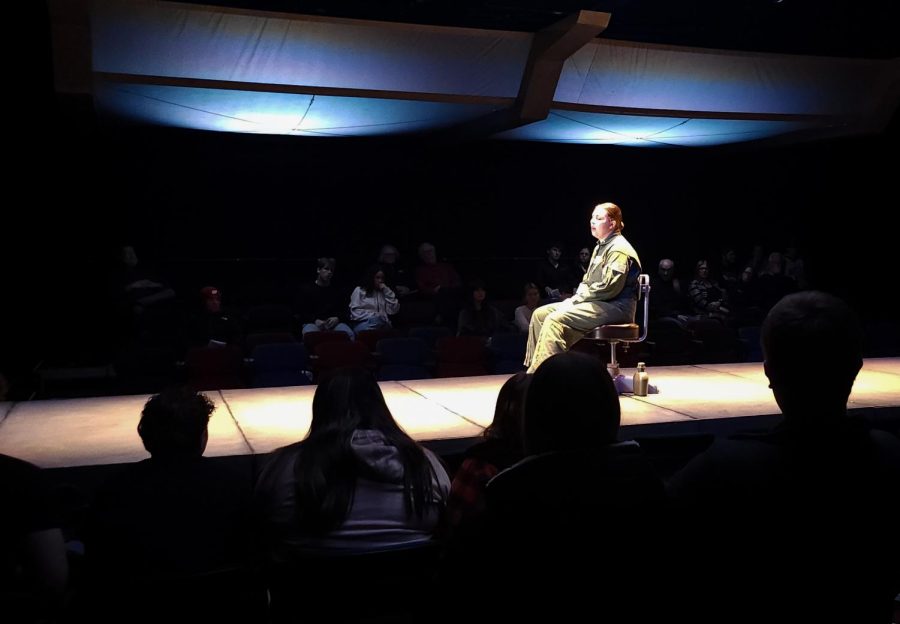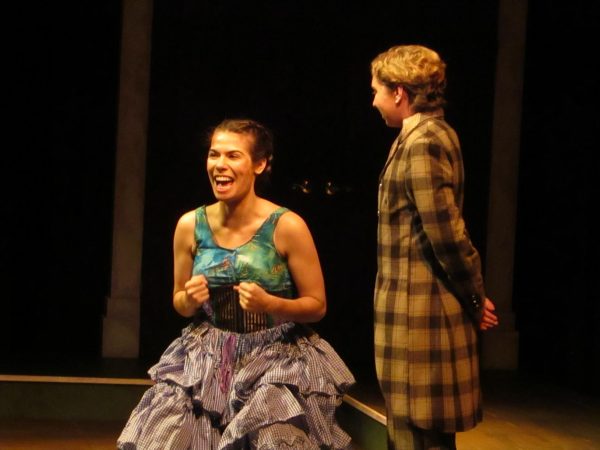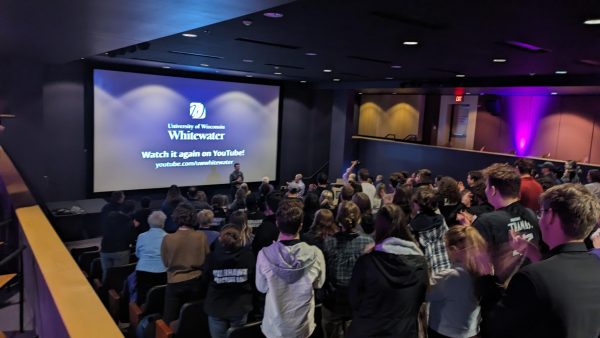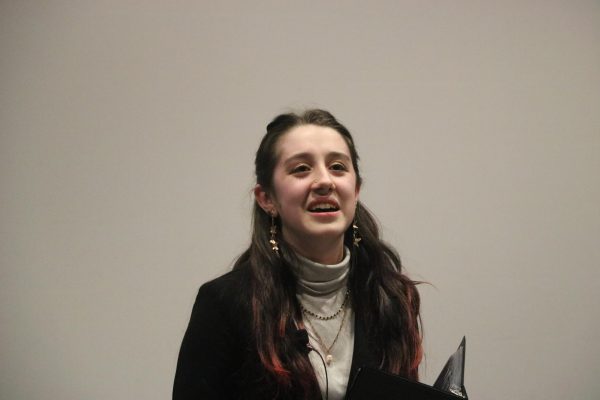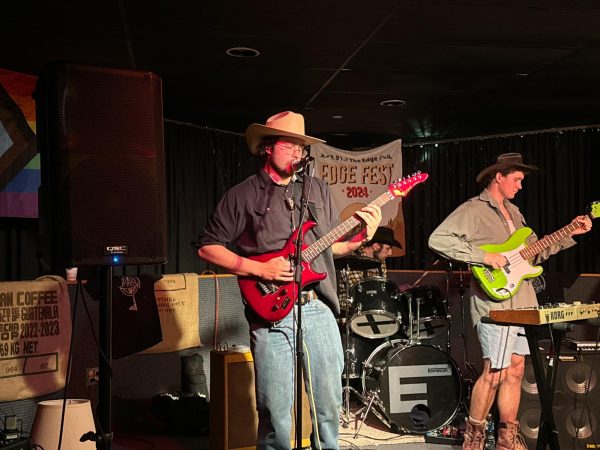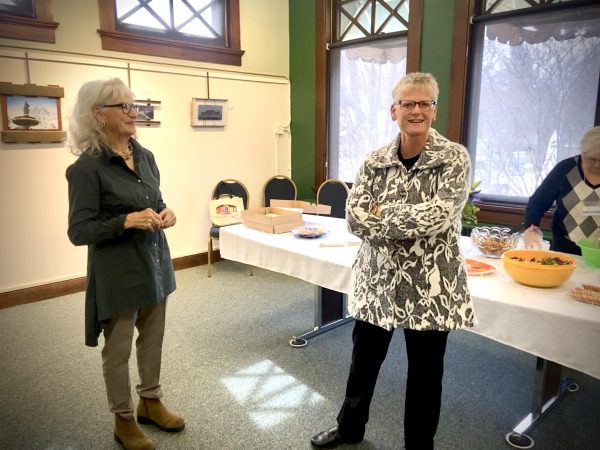An afar war seen up close
‘Grounded’ play astounds audiences
Nadlia Wolowik, as the the pilot in Grounded, contemplates her pregnancy after a short-fling with a man from her hometown.
December 4, 2022
One actor does not seem like enough to fill a whole theatrical stage. The wrong script, actor, or technical elements can make a one-act show monotonous. However, this was not the case for the Whitewater Theatre Department’s Production of Grounded. All aspects of the creation of this show worked together in harmony this past week. The play, written by George Brant, follows a fighter-jet pilot serving in the Middle East. Throughout the 80-minute runtime, the audience follows a pilot, played by sophomore Nadia Wolowik, who slowly discovers the human cost of war following the birth of her daughter.
“We are privileged. We live in a time, and a place where the loss of our children to the terrors of war may no longer be our legacy or our inevitability. The progression of drone weapon technology is on track to expand beyond aircraft to ground and sea applications. Tanks, ships and even foot soldiers will be replaced by machines our children may serve tours of duty that allow the possibility of weekly, Sunday dinners with the family. Our children may be sent to war without being sent anywhere beyond our reach and our embrace,” said Director Bruce Cohen.
Brant’s script was one of the first to examine the new use of drones in the U.S. Military. The titular lead is assigned to the “chair force” after starting a family. We watch as the pilot goes from flying in the blue skies of Afghanistan to being constricted in a concrete room controlling a drone across the world. Slowly, the lines begin to dissolve between the desert she lives in and the one that’s being stalked by her drone.
Colors played a large role in this production. The pilot is stuck longing for the blue sky she once used to fly in, while now forced to be staring at a gray screen. Every once in a while, we watch as “pink” shines its way into her life. Through her pregnancy, the kisses on her daughter’s forehead, and more. Though “blue” and “pink” can undeniably represent the contrast between masculinity in the Armed Forces and the femininity to which the pilot’s daughter is drawn to; I believe there’s more to it. The sadness of the color blue, though well-known by most, is not identified by the pilot. She loves her time in the armed forces without realizing the isolation and trauma it is bringing her. Though she originally is abhorrent towards the “pink” in her life; we watched as the warm color began to constitute the new-found happiness in the pilot’s life, her family.
What made Whitewater’s production so successful was the technical elements incorporated. Members of the team consisted of students, guests, and staff. To fully compass the shifting mood of each stage of the pilot’s life, was no easy feat. Large lighting fixtures hung above the audience illuminating both the crowd watching and Wolowik alike. It was an effective way to make audience members feel as though they were in a conversation with the Wolowik, as well as easily isolating her when needed.
Moreover, Wolowik delivered a fun, captivating performance. Being able to accurately showcase anger, sadness, and even sexual arousal without leaving the stage is an impressive feat. With this only being Wolowik’s second performance at UW-Whitewater, Grounded was a great showcase of the talent hosted at the university.
Though speaking about the horrors of war is not an easy topic, Whitewater’s Theatre Department managed to showcase the experience freshly and uniquely. Though no more one-person performances are scheduled for Whitewater’s upcoming semester, several other productions are to be looked forward to. Readers can visit the Arts Events Page to learn more.


